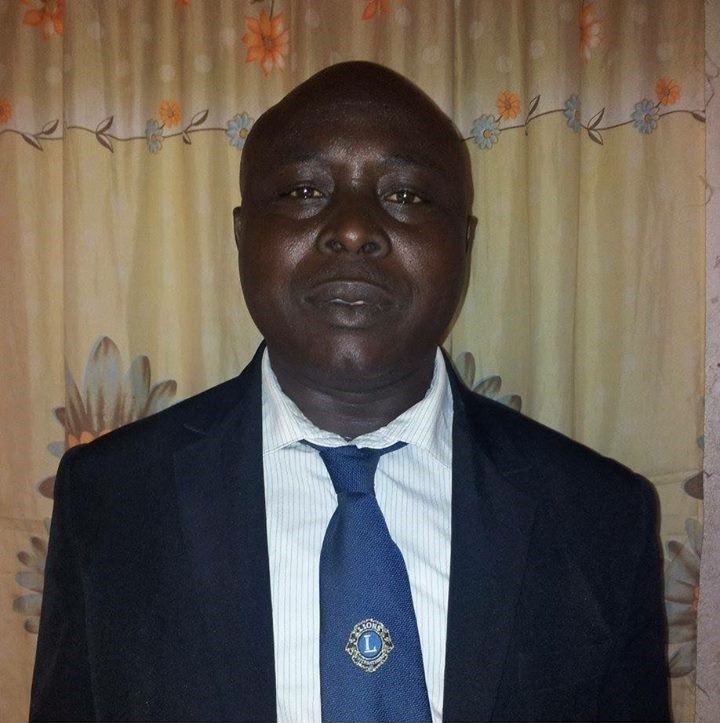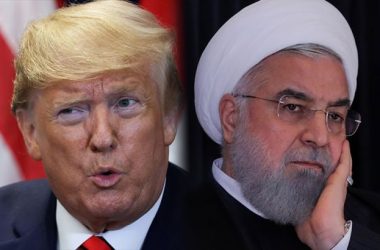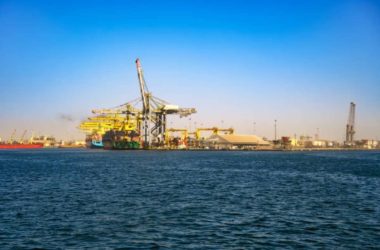
(JollofNews) – 14th April 2016 shall go down in the history of the Gambia as the decisive beginning of the end of dictatorship in the Gambia after 22 years. When Solo Sandeng and his compatriots defied fear and death to protest against dictatorship and demand for electoral reforms, they did not know that they were embarking on a historic journey that will change the face of the Gambia in just a few months.
Now that we have traveled one year since that fateful Solo Sandeng Day, it should serve as a reminder to each and every one that indeed freedom is not free. Solo Sandeng and his departed compatriots; Solo Koroma, Lang Marong and Janko Ceesay of Blessed Memory have told us that indeed the price of freedom is death. We therefore must honour these citizens with the highest honours that our land can give. May their gentle souls rest perfect peace. Amen.
Solo Sandeng Day must be a moment of reflection for all Gambians because of the passion, determination and objectives that gave birth to that day. Why did Solo Sandeng and company decide to protest knowing full well the fatal consequences that await them? It is when we consider these issues so as to address the underlying factors that we will validate and vindicate Solo and fellow compatriots. Failure to learn lessons and carve out a progressive way forward would be a dishonour to our fallen heroes and a lack of progress on our part. Hence we must interrogate the issues that underpin this day in 2016 to determine how do we go from here.
In the first place, it is clear that Solo and colleagues went out to demand freedom and dignity in their society. Yet they were met with a violent crackdown. When Ousainou Darboe led his party to demand the body of Solo, they were equally met with the same violence and incarceration. Clearly it means therefore that the APRC Dictatorship thrived on bad laws and violence to deny basic rights to Gambians. To enforce these bad laws and violence, they used the judiciary and law enforcement systems of our country, illegally. Therefore when we have effected that change through a democratic process, it should be the objective of all Gambians to ensure that never again should we have such bad laws and oppressive institutions in place.
The first lesson of Solo Sandeng Day therefore is to democratize our laws in order to proclaim the sovereignty and protect the rights of Gambians. When we have democratic laws, we ensure good governance and remove abuse of power for which there would no need for a citizen to sacrifice his life just to enjoy his or her basic right. Section 25(d) of our Constitution guarantees the freedom to assemble and demonstrate peaceably. Yet this was what Solo did only to lose his life. Therefore in walking the footsteps of Solo to continue that journey to its logical destination, let this day be the beginning of the process of repealing all bad laws and democratizing the judiciary and law enforcement structures and processes.
This would require that we therefore indigenize our judiciary. When we have Gambian citizens as the givers of justice within a political system that abides by the principle of separation of powers, indeed our citizens will then enjoy liberty and dignity. So long as non-Gambians are allowed to function as the officers of justice, the tendency to buy and manipulate them is higher.
The first such law to repeal is the Pubic Order Act. This Act is unnecessary in a democracy. The act seeks to restrict processions and the use of loudspeakers, not for the maintenance of peace and security, but essentially to limit freedoms of citizens to express themselves. By limiting this freedom to demonstrate it means the state intends to deny citizens the ability to hold them to account. Citizens must have the right to demonstrate which is another form of free expression without which democracy is a sham. In any society where there are such checkpoints against freedom of expression such a society is a dictatorship.
Citizens have a right to freely express their opinions through writing and speech on the media or in paintings, drumming as well as in music and research. Other times citizens express themselves through processions and sit-ins to occupy public spaces. Sometimes citizens express themselves just by boycotting or staying at home among many other forms of self-expression. It is these actions that therefore enable citizens to raise issues and concerns to the relevant authorities. These actions help to alert a government to the burning issues of the citizens and address them.
In any society where the ability to freely and openly express oneself does not exist, then transparency and accountability will not prevail. It is in such societies that abuse of power and disregard of the rule of law prevail. In such circumstances corruption becomes the order of the day while delivery of public goods and services are poor, erratic, expensive and not available to all. Twenty-two years of APRC Tyranny is a clear testimony of such a society. This must not be repeated.

The second lesson of Solo Sandeng is educating our law enforcement services in order to democratize them. Human rights education must be an integral part of the training of the police, prisons, immigration, customs and intelligence agencies. It must be understood that the police are human rights defenders. Every law enforcer is a human rights protector because the law that is enforced is a law that is designed to protect human rights. Hence every work of the police is about human rights. Therefore human rights education should be at the core of the training of armed and security forces.
The third lesson of Solo Sandeng is to empower the police services. Our law enforcement agencies and agents must be well trained and equipped to enable them detect and prevent crimes as well as engage the public peacefully with respect. The police must have the knowledge and skills to conduct investigations and interrogations without having to torture and abuse in anyway. They must be professional enough to be able to control demonstrations without the use of violence.
The fourth lesson of Solo Sandeng should be disarming the police force as a whole. This means the Police Intervention Unit must be disbanded. Gambia has a long tradition of unarmed police officers. This must continue because police services are community services. Police officers are expected to live and interact with the community. By placing guns into the hands of police officers, we would therefore create the need to use arms eventually as well as bring arms into the community, which could have far reaching devastating consequences.
The final lesson of Solo Sandeng is for Gambians to realize that the final solution lies in good governance. This means the government must be transparent, accountable and responsive at all times, and public institutions must be efficient while the rule of law is upheld by all. Delivery of public goods and services must be efficient and there must be an economic environment that is viable, competitive and well regulated along the lines of fair play and cost-effectiveness.
In a nutshell the necessary checks and balances must be robust, effective and predictable to prevent and combat abuse of power and corruption. These are the foundations upon which we can build a just, stable and peaceful society where each and every citizen would be able to acquire the right opportunities for one’s upliftment, unfettered.
Long Live Solo Sandeng and Fallen Heroes and Heroines!
God Bless The Gambia.






Brilliant piece – sends a chill down the spine. Long Live Solo and Comrades and indeed Solo Sandeng Day should be formalised ASAP.
“Disarming all police” may be dangerous when Gambia nowadays has ARMED ROBBERS – some coming from accross the border. If we disarm all police, we may only have armed soldiers to respond to ann armed robbery and surely we don’t want that.